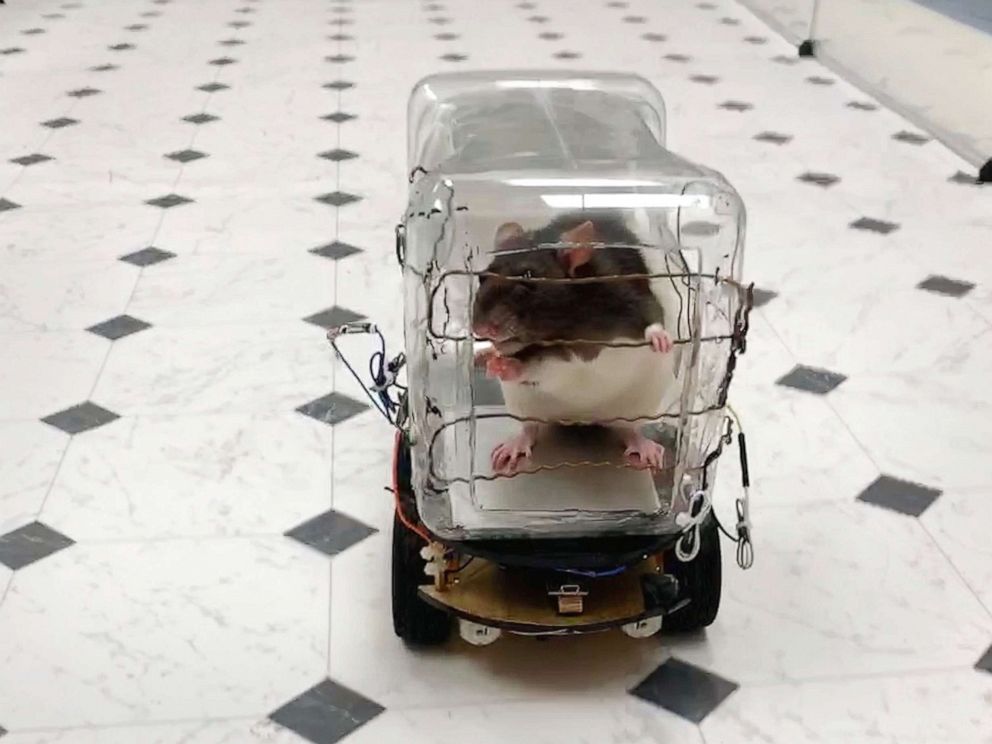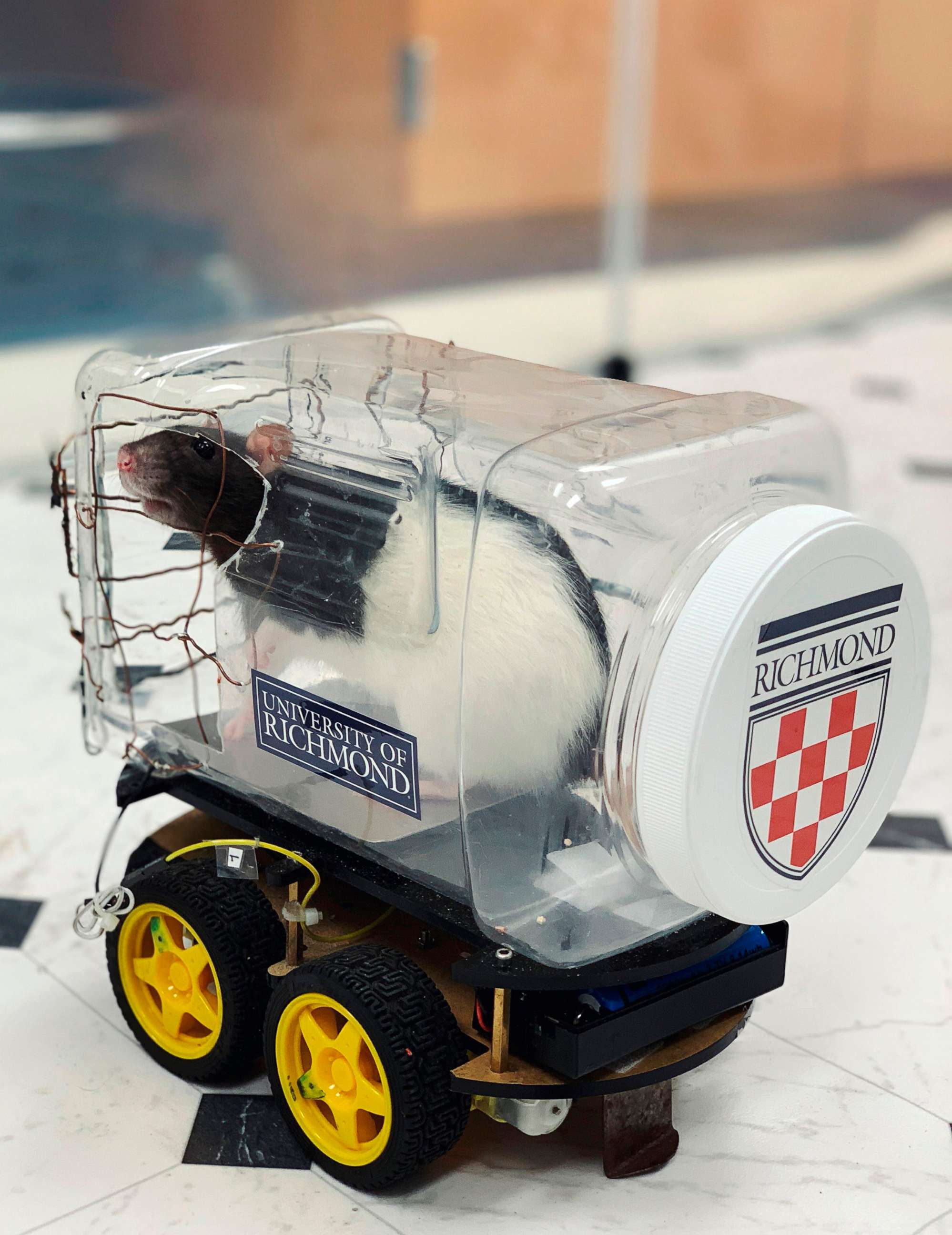Rats can learn to drive, new study shows
The rats were trained in "rodent operated vehicles."
Rats at the University of Richmond were operating a different kind of wheel for this experiment.
Researchers at the college trained six female rats and 11 male rats how to drive a "rodent operated vehicle," which was constructed using a one-gallon plastic container, according to a study published on Oct. 16 in Behavioural Brain Research journal.

The ones that lived in an "enriched environment," as in they had objects to interact with, passed their driver's test and were given Fruit Loops as a reward. Video of one rodent shows it driving forward in a contained area and steering the "vehicle." At one point, the rat crashes into a wall, but manages to turn the "vehicle" and continue cruising.
The rats that were housed in a standard laboratory cage, however, had difficulties learning to drive and failed the test, the study authors noted.
Yet all of the rats, regardless of their living conditions, showed better mental health and a "more resilient stress hormone" just from the training itself. Researchers discovered this by looking at the rat's poop and determining the hormones associated with resilience were higher compared to their stress hormone.

The scientists involved in the experiment said rat brains serve as an appropriate model for the human brain because they share the same areas and neurochemicals. And while humans are more complex than rats, the four-legged critters can help scientists understand "universal truths about how brains interact with environments to maintain optimal mental health," according to Kelly Lambert, a professor of behavioral neuroscience at the University of Richmond and one of the researchers involved in the experiment.
"We're interested in how they can use a car as a tool to navigate the environment," Lambert said. "It's a good learning opportunity, and we're not sure where that's going to take us, what destination, but it's been fun."



